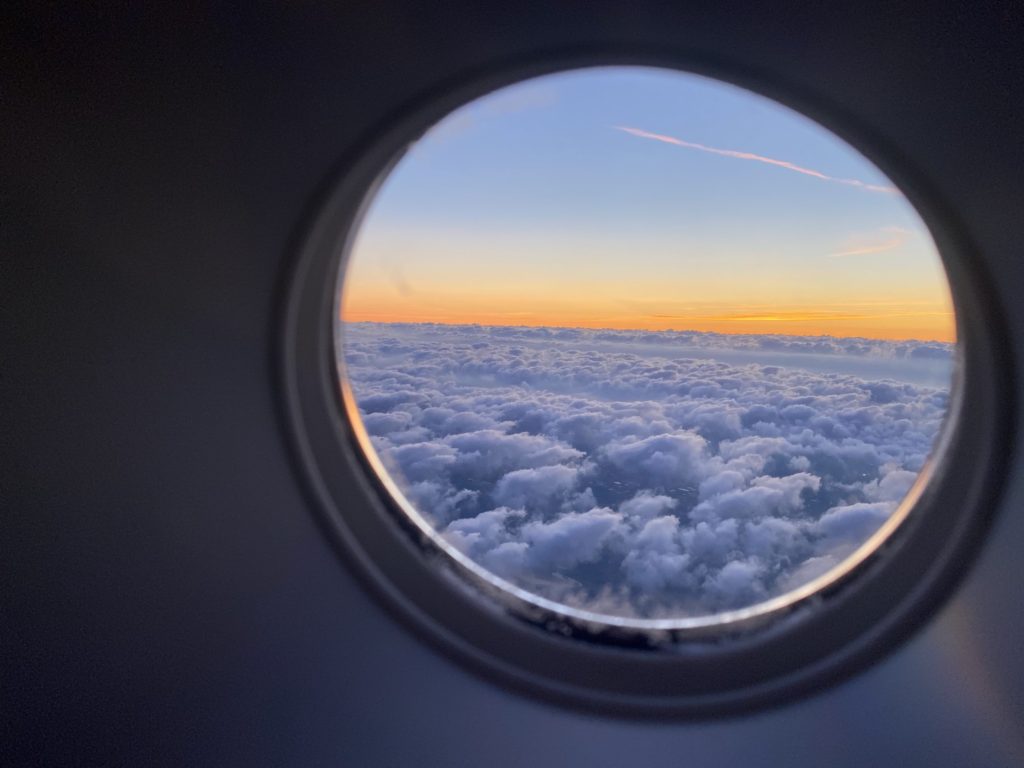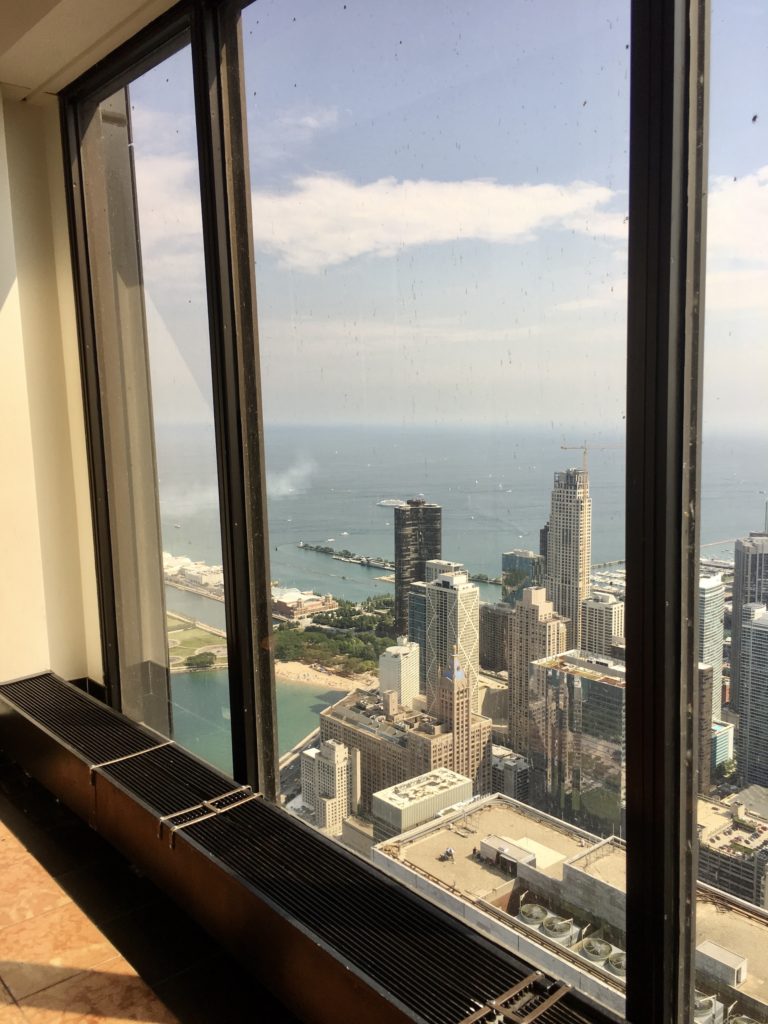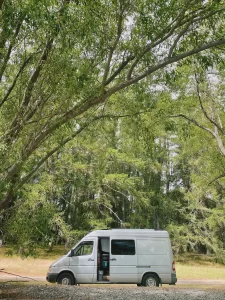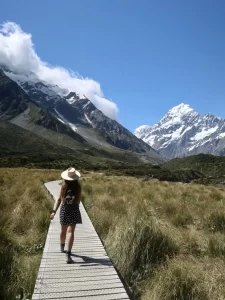As a flight attendant affected by COVID furloughs, the future of travel is a topic that I think about a lot. In this post, I’ll be going over my personal thoughts and predictions for how travel will look post-COVID.
What will the world look like? How will we be able to go back to normal? Should we even go back to how we used to do things? All of these questions are ones we’ll need to answer. And while I do think travel will bounce back to pre-pandemic levels, I think it will look a bit different than we’re used to (at least for a while).
Changes since COVID
On the airplane
The transportation sector has radically changed since the beginning of the pandemic. Obviously, the fear of being near contagious strangers has made travelers expect certain changes from airlines. Social distancing on the plane, intense cleaning between flights, and mask-wearing have become the norm.
Service on the airplane has also been affected. Many airlines now have cut out any kind of beverage or meal service completely. The rest have changed over to all-in-one snack packs and bare-bones service. Although it would be unrealistic to expect no one to eat or drink on long-haul flights, airlines are doing their best to encourage masks to stay on for as long as possible.
Furloughs, of course, have impacted airlines as well. Since October, over 32,000 of the most junior flight attendants have temporarily lost their jobs. (Just yesterday, Congress approved an extension to the Payroll Support Program. This means that all furloughed flight attendants are employed again through March 2021. Stay tuned for another post explaining how this works!)
Borders & visas
Normally, people with passports from Europe or English-speaking countries like the USA and Australia have a pretty easy time traveling. Having a powerful passport meant you could just up and enter a country, no problem. Visas, quarantines, and travel restrictions were few and far between.
Because of COVID, most countries have become much more selective with who they’re choosing to let through their borders (hence my need for a New Zealand CPVV). Countries like Turkey that haven’t enacted any travel restrictions during the pandemic are now dealing with an influx in positive cases. Because of the USA’s lack of control over the virus, many other countries have closed their borders to American travelers.

Elizabeth Becker, author of Overbooked: The Exploding Business of Travel and Tourism, says:
Those essential pillars of 21st-century global travel—open borders, open destinations, and visa-free travel—won’t return in the short term or even medium term.
Whereas traveling used to be much simpler, it is now more time-consuming and requires forethought. Being able to travel freely was something that I personally took for granted before this year. Especially as a flight attendant, I could book a flight to nearly any country I wanted to visit without any problems. Now, that ability is basically gone.
Ethical travel
Travel is not a right, it’s a privilege. With that privilege comes a responsibility to be as ethical as possible when traveling. This includes considering how your actions will directly impact the communities you visit. As we all know by now, it’s possible to be asymptomatic and still spread the virus to others. Until the vaccine helps us reach herd immunity, that’s something we need to take into consideration before traveling.
In my opinion, I think that a lot of people won’t feel completely comfortable traveling until most people are vaccinated. As an airline worker, I’m torn. On one hand, I understand the current travel restrictions and think that they’re important to keep people and communities safe. On the other hand, I want my job back and can’t wait to see planes full again. At this point, I think that it’s vital to come up with a solution moving forward — one that will allow people the freedom to travel post-COVID while reducing transmission of the virus.

Post-COVID travel predictions
Focus on sustainability
I think that going forward, there will be a larger focus on quality over quantity. People will be more selective with the kinds of trips they’re willing to take. Since traveling presents a greater risk of getting sick than it has in the past, people will think twice about taking a trip just because.
In turn, this focus on quality also could lead to spending longer amounts of time in one place. Bouncing from one place to another in one trip is more difficult and brings more risks, so slower travel will become more popular. I think that there will be less focus on the number of countries you’ve been to and more focus on actually enjoying your time at a destination.
Since more people are now able to work from home, it’ll become easier to spend longer amounts of time traveling. Along with traveling slower and spending more time in one place, I think that a lot more people are going to plan “working holidays.” I think becoming a “digital nomad” will become a more common and less radical thing to do.
Road trips & domestic travel
I believe that taking a road trip, either to get to your destination or as a trip in and of itself, will become way more popular. Traveling in your own car is the perfect pandemic escape! You hardly need to interact with anyone and you’re not stuck in a metal tube filled with people for hours. Road trips also give you the freedom to escape city life and get out into nature.
Along with that, domestic travel will obviously be more popular for the foreseeable future. Since international travel is restricted, people will be way more keen to explore their own backyards. After being cooped up in the house for months, having a staycation in your own town or state is much more exciting than it otherwise would be.
Outdoor adventures
Going along with the “not wanting to be around other people” theme, I think that taking outdoorsy or adventurous trips will become more popular. National Parks, beaches, hiking trails, and skiing or snowboarding trips are sure to draw more people than usual. Connecting with nature is one of the easiest ways to have a relaxing time, which is what everyone needs after living through 2020.
Biometrics & vaccination passports
In an effort to reduce touchpoints and minimize human interaction while traveling, certain airports have started to think about solutions. One of those solutions could include using biometric facial recognition software to replace your boarding pass. A machine would scan your face, keep it in a database, and use it to verify your identity. Doing this would streamline the check-in process and help governments with contact tracing.
Another way that the travel experience could change post-COVID involves having a vaccination passport. These would essentially be in the form of an app that links to your biometric passport data. After verifying your identity, you upload proof that you have received the COVID vaccine. Immigration officials would then use these digital health passports to let you into the country.
I expect that some countries will eventually ask for proof of being vaccinated as a requirement for entry. Certain countries require proof of vaccination against yellow fever, so it’s not an unheard-of idea. Private businesses (especially airlines) are likely to require the same in the future as well. Australian airline Qantas has already said that travelers will need proof of COVID vaccination to board a flight.

Post-COVID travel is bound to be different than what we’re used to. While it may become less convenient or easy to jet-set around the world, the travel industry can’t be kept down for too long. I thoroughly believe that we will find a way to make traveling safe and fun again.
xoxo Niki


